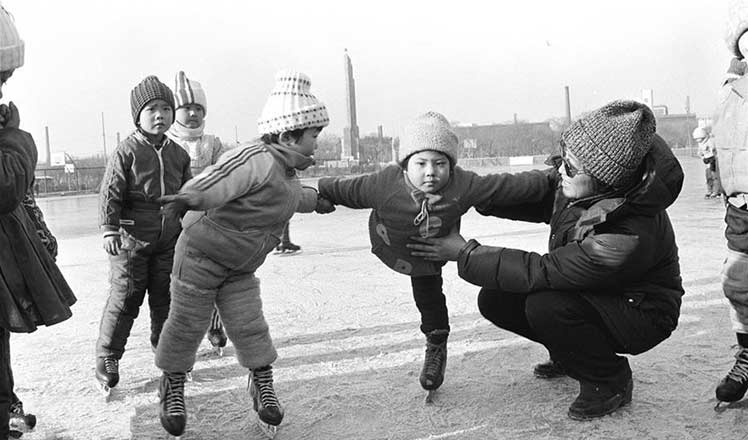Standing out from the crowd
Updated: 2016-01-22 23:17
By y WANG YING in Shanghai(China Daily USA)
|
||||||||
 |
|
Stanley Ching, senior managing director of Citic Capital's real estate business, believes the retail business will continue to grow in the next several years in the city. PROVIDED TO CHINA DAILY |
Despite an over-saturated commercial property market, Citic Capital is confident that it can attract the crowds with its new glitzy shopping mall that it says will be accessible and affordable to all
He may have lived overseas for decades, but Shanghai still holds a special place in Stanley Ching's heart. Born in this city, Ching regards the unique Shanghainese dialect as his mother tongue and those delicious flavored dumplings sold at the snack bar located near his office still ranks among his favorites.
The senior managing director of Hong Kong-based Citic Capital's real estate business, Ching is coming full circle back to his roots, leading his team on their first commercial project in Shanghai.
Shanghai 189Lane, a new $250 million shopping mall, will occupy an area of 6,157 square meters and is located at the intersection of Changshou and Xikang roads in Putuo district.
For the first time, Citic Capital, an alternative investment management and advisory company under Citic Group, will be building a shopping mall in Shanghai on their own instead of engaging a developer.
"Commercial facilities that used to be stylish a decade ago are no longer adequate for modern needs, such as places for entertainment and exercise. The 189Lane project will mix traditional Shanghai culture with modern experiences," said the 49-year-old.
"We are trying to make the development the city's living room, and the high quality service and products we provide will be affordable for daily consumption at the same time. To achieve this goal, we need to make every decision properly and carefully, and we cannot simply outsource the project to a developer."
Citic Capital's decision to undertake the building of their own mall in Shanghai stems from the success of another similar development in Hunan province where Ching's team turned an unfinished building into the most popular and visited shopping mall in the provincial capital of Changsha within three years.
The team started to expand following this successful project and Citic Capital now operates a team of more than 20 people who focus on the commercial property sector. In addition to the Changsha and Shanghai developments, Citic Capital also has on-going projects in Beijing and Hefei of Anhui province.
For the last decade, the company has placed much focus on the Chinese mainland by investing in more than 4 million square meters of properties, and its real estate team has made commercial properties their main investment priority.
"Half of our investment capital goes to building shopping malls, with the rest flowing to residential projects and offices," said Ching, who added that Citic Capital has poured a total of $1.3 billion into the domestic property market as part of efforts to gradually establish its own assets portfolio.
Citic Capital's ambition in the real estate and commercial properties scene in China comes at a time when the economy is slowing. Inventories of shopping mall space are rising, too.
In 2014, half of the 11.4 million square meters of newly-opened shopping centers worldwide were located in China, and the country also accounted for more than 60 percent of the shopping projects underway globally, according to a report from real estate consultancy CBRE.
The survey also stated that nine out of the ten most active markets are in China, and Shanghai ranks the top in terms of retail space under construction (4.1 million sq m), followed by Shenzhen (3.4 million sq m), Chengdu (3 million sq m), Chongqing (2.6 million sq m) and Guangzhou (2 million sq m).
Meanwhile, the total number of new malls in China was expected to reach 4,000 by the end of 2015, surging 40 percent from 2011, according to another report from the China Chain Store Association and professional services firm Deloitte. Despite the oversupply in the market, Ching believes there are still opportunities because "the actual supply and demand situation will be different from area to area".
He also views the slowdown in the commercial property scene as a favorable situation that could provide his team with opportunities.
"The land would be priced at a more reasonable level while the market would be more investor-oriented. Overcapacity is not new in all industries. The players just need to be selective when making decisions," said Ching.
Ding Zuyu, executive president of E-House (China) Holdings Ltd, said that the heated competition in the property market will eventually lead to an industrial reshuffle where the smaller companies will gradually die out, leaving only the best and most competitive ones to survive and expand.
On the bright side, China's retail sector is expected to continue its significant growth. According to PricewaterhouseCoopers' 2015-2016 Outlook for the Retail and Consumer Products Sector in Asia report, China's annual retail volume is expected to grow at an average of 8.7 percent over two years, and the country is set to become the world's largest retail market by 2018.
"The retail sector in the next five to 10 years will continue to grow promisingly. Although e-commerce has been taking a larger share of the pie in retail, there will still be a considerable demand for physical store retailing," added Ching.
Ching also believes that the physical shopping experience cannot be replaced by its online alternative, and that e-commerce brands will need to take their business offline if they want to develop past a certain stage.
"Take the Apple store for example. They provide a place for people to try all of Apple's offerings, and with the expansion of its products, we have seen more and more Apple stores in our cities," he said.
Ching added that while brick and mortar stores fulfill the need for humans to socialize, and will thus never go extinct, shopping mall operators nevertheless need to pay more attention to the design and hardware elements in order to make their facilities more attractive to consumers.
- Netizen backlash 'ugly' Spring Festival Gala mascot
- China builds Mongolian language corpus
- China's urban unemployment rate steady at 4.05 pct
- German ecologist helps relieve poverty in Sichuan
- 'Unhurried' Guizhou village makes NY Times list of places to visit
- Railway police nab 40,315 fugitives in 2015
- 7 policemen, 3 civilians killed in Egypt's Giza blast
- Former US Marine held in Iran arrives home after swap
- Powerful snowstorm threatens US East Coast; flights canceled
- 2015 Earth's hottest year on record: US agencies
- 8 killed in car bomb near Russian Embassy in Kabul
- Researchers find possible ninth planet beyond Neptune

 Art exhibitions in 2016 worth seeing
Art exhibitions in 2016 worth seeing
 Winter flexes its muscles as cold snap makes its way
Winter flexes its muscles as cold snap makes its way
 Bright Temple of Heaven shines in winter
Bright Temple of Heaven shines in winter
 Netizen backlash 'ugly' Spring Festival Gala mascot
Netizen backlash 'ugly' Spring Festival Gala mascot
 Egyptian welcome for Chinese President Xi Jinping
Egyptian welcome for Chinese President Xi Jinping
 Robots reads China Daily to stay up to date with news in Davos
Robots reads China Daily to stay up to date with news in Davos
 China's Yao honored with Crystal Award in Davos
China's Yao honored with Crystal Award in Davos
 Happy memories warm the winter
Happy memories warm the winter
Most Viewed
Editor's Picks

|

|

|

|

|

|
Today's Top News
National Art Museum showing 400 puppets in new exhibition
Finest Chinese porcelains expected to fetch over $28 million
Monkey portraits by Chinese ink painting masters
Beijing's movie fans in for new experience
Obama to deliver final State of the Union speech
Shooting rampage at US social services agency leaves 14 dead
Chinese bargain hunters are changing the retail game
Chinese president arrives in Turkey for G20 summit
US Weekly

|

|








